Search the Special Collections and Archives Portal
Search Results
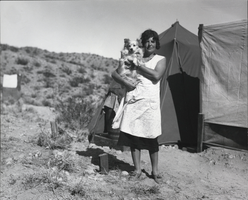
Photograph of Mrs. Edith Powell, Boulder City, Nevada, March 13, 1931
Date
1931-03-13
Archival Collection
Description
Mrs. Edith Powell, the first woman resident of Boulder City, in Boulder City, Nevada. Mrs. Edith Powell is wearing a white dress and holding a small dog while standing in front of her wrinkled tent house.
Image
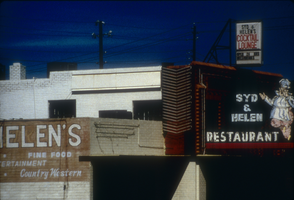
Slide of the neon sign for Syd and Helen's Cocktail Lounge and Restaurant, Reno, Nevada, 1986
Date
1986
Archival Collection
Description
A color image of the neon signs for Syd and Helen's Cocktail Lounge and Restaurant, located on West 4th Street in Reno. Site Name: Syd and Helen's Cocktail Lounge and Restaurant (Reno, Nev.)
Image
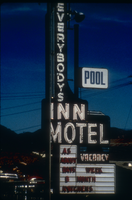
Slide of the neon sign for Everybody's Inn Motel, Reno, Nevada, 1986
Date
1986
Archival Collection
Description
A color image of the neon sign for Everybody's Inn Motel, located on East 4th Street in Reno. Site Name: Everybody's Inn Motel (Reno, Nev.)
Image
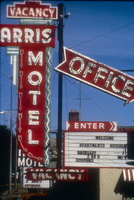
Slide of the neon sign for the Farris Motel, Reno, Nevada, 1986
Date
1986
Archival Collection
Description
A color image of the neon signs for the Farris Motel, located on East 4th Street in Reno. Briefly called the Shady Grove Motel in 1946 Site Name: Farris motel (Reno, Nev.)
Image
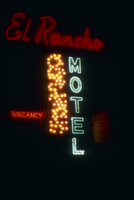
Slide of the neon sign for the El Rancho Motel, Reno, Nevada, 1986
Date
1986
Archival Collection
Description
A color image of the neon sign for the El Rancho Motel in Reno, lit up at night. Site Name: El Rancho Motel (Reno, Nev.)
Image
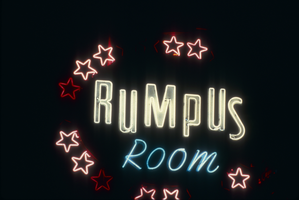
Slide of the neon sign for the Rumpus Room bar, Reno, Nevada, 1986
Date
1986
Archival Collection
Description
A color image of the neon sign for the Rumpus Room Bar, located on East 4th Street in Reno, lit up at night. Site Name: Rumpus Room (Reno, Nev.)
Image
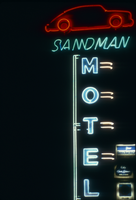
Slide of the neon sign for the Sandman Motel at night, Reno, Nevada, 1986
Date
1986
Archival Collection
Description
A color image of the neon sign for the Sandman Motel on East 4th Street in Reno, lit up at night. Site Name: Sandman Motel (Reno, Nev.)
Image
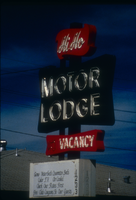
Slide of the neon sign for the Hi Ho Motor Lodge, Reno, Nevada, 1986
Date
1986
Archival Collection
Description
A color image of the neon sign for the Hi Ho Motor Lodge on East 4th Street in Reno. Site Name: Hi Ho Motor Lodge (Reno, Nev.)
Image

Slide of the neon sign for the Hi Ho Motor Lodge at night, Reno, Nevada, 1986
Date
1986
Archival Collection
Description
A color image of the neon sign for the Hi Ho Motor Lodge on East 4th Street in Reno, lit up at night. Site Name: Hi Ho Motor Lodge (Reno, Nev.)
Image
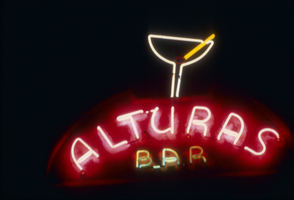
Slide of the neon sign for Alturas Bar, Reno, Nevada, 1986
Date
1986
Archival Collection
Description
A color image of the neon sign for Alturas Bar on East 4th Street in Reno, lit up at night. Site Name: Alturas Bar (Reno, Nev.)
Image
Pagination
Refine my results
Content Type
Creator or Contributor
Subject
Archival Collection
Digital Project
Resource Type
Year
Material Type
Place
Language
Records Classification
